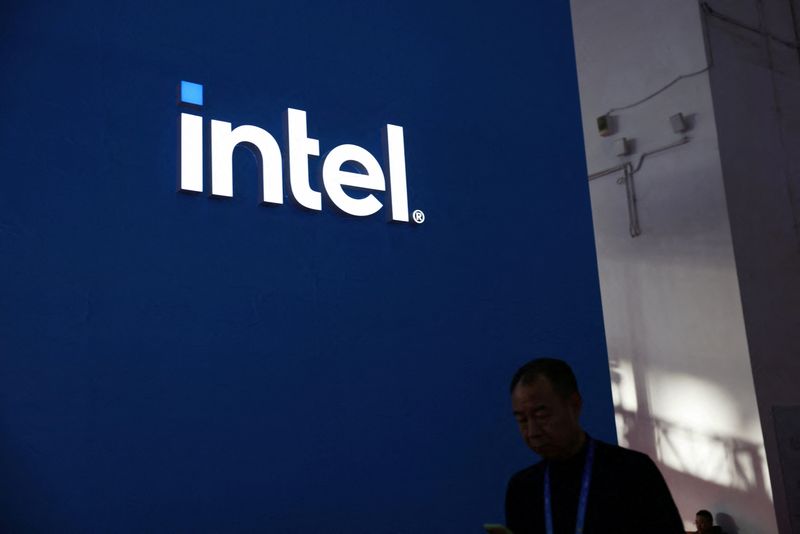Investing.com– Intel Corporation (NASDAQ:) could generate near-term profits by exiting its foundry business, but now faces risks to its long-term value with the resignation of Pat Gelsinger as CEO, according to Citi- analysts in a note.
Citi analysts said it would be “in the best interests of Intel shareholders” if the company abandoned its efforts to become a merchant foundry and sold the company. The brokerage sees a higher probability of this scenario, as Gelsinger was a champion of the ailing foundry unit.
But Citi also noted that Gelsinger was a driving force in improving Intel’s overall production, and that the company could face “long-term pain” if the new CEO does not share his technical expertise.
Intel said Monday that CEO Gelsinger will step down and be replaced by David Zinsner and Michelle Holthaus as interim co-CEOs. The chipmaker’s shares, which have halved in value so far in 2024, fell slightly after the announcement.
The chipmaker has largely lagged behind rivals like TSMC (NYSE:) and NVIDIA Corporation (NASDAQ:) in rolling out breakthrough silicon, with its shortcomings becoming even more apparent over the past two years amid increased interest in artificial intelligence. The company largely failed to capitalize on an AI-induced spike in chip demand.
Gelsinger’s departure came less than four years into his term, as the board lost confidence in his plan to turn around the ailing chipmaker.
Gelsinger had recently outlined plans to spin off the foundry business, which has been steadily losing money. But a recent $7.86 billion government grant the company won came with the caveat that Intel could sell only a limited stake in its foundry unit.
Citi analysts said Intel had a slim chance of succeeding in the foundry sector, and gross margins could improve significantly if the unit is divested.
The brokerage has a neutral rating on the stock with a $22.0 price target.


